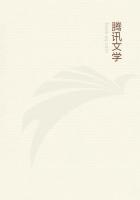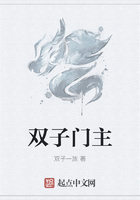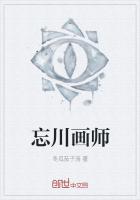Our fathers contented themselves with revenging an insult with the lie, the lie with a box of the ear, and so forward; they were valiant enough not to fear their adversaries, living and provoked we tremble for fear so soon as we see them on foot. And that this is so, does not our noble practice of these days, equally to prosecute to death both him that has offended us and him we have offended, make it out? 'Tis also a kind of cowardice that has introduced the custom of having seconds, thirds, and fourths in our duels; they were formerly duels; they are now skirmishes, rencontres, and battles. Solitude was, doubtless, terrible to those who were the first inventors of this practice:
"Quum in se cuique minimum fiduciae esset," for naturally any company whatever is consolatory in danger. Third persons were formerly called in to prevent disorder and foul play only, and to be witness of the fortune of the combat; but now they have brought it to this pass that the witnesses themselves engage; whoever is invited cannot handsomely stand by as an idle spectator, for fear of being suspected either of want of affection or of courage. Besides the injustice and unworthiness of such an action, of engaging other strength and valour in the protection of your honour than your own, I conceive it a disadvantage to a brave man, and who wholly relies upon himself, to shuffle his fortune with that of a second; every one runs hazard enough himself without hazarding for another, and has enough to do to assure himself in his own valour for the defence of his life, without intrusting a thing so dear in a third man's hand. For, if it be not expressly agreed upon before to the contrary, 'tis a combined party of all four, and if your second be killed, you have two to deal withal, with good reason; and to say that it is foul play, it is so indeed, as it is, well armed, to attack a man who has but the hilt of a broken sword in his hand, or, clear and untouched, a man who is desperately wounded: but if these be advantages you have got by fighting, you may make use of them without reproach. The disparity and inequality are only weighed and considered from the condition of the combatants when they began; as to the rest, you must take your chance: and though you had, alone, three enemies upon you at once, your two companions being killed, you have no more wrong done you, than I should do in a battle, by running a man through whom I should see engaged with one of our own men, with the like advantage. The nature of society will have it so that where there is troop against troop, as where our Duke of Orleans challenged Henry, king of England, a hundred against a hundred; three hundred against as many, as the Argians against the Lacedaemonians; three to three, as the Horatii against the Curiatii, the multitude on either side is considered but as one single man: the hazard, wherever there is company, being confused and mixed.
I have a domestic interest in this discourse; for my brother, the Sieur de Mattecoulom, was at Rome asked by a gentleman with whom he had no great acquaintance, and who was a defendant challenged by another, to be his second; in this duel he found himself matched with a gentleman much better known to him. (I would fain have an explanation of these rules of honour, which so often shock and confound those of reason.) After having despatched his man, seeing the two principals still on foot and sound, he ran in to disengage his friend. What could he do less? should he have stood still, and if chance would have ordered it so, have seen him he was come thither to defend killed before his face? what he had hitherto done helped not the business; the quarrel was yet undecided. The courtesy that you can, and certainly ought to shew to your enemy, when you have reduced him to an ill condition and have a great advantage over him, I do not see how you can do it, where the interest of another is concerned, where you are only called in as an assistant, and the quarrel is none of yours: he could neither be just nor courteous, at the hazard of him he was there to serve. And he was therefore enlarged from the prisons of Italy at the speedy and solemn request of our king. Indiscreet nation! we are not content to make our vices and follies known to the world by report only, but we must go into foreign countries, there to show them what fools we are. Put three Frenchmen into the deserts of Libya, they will not live a month together without fighting; so that you would say this peregrination were a thing purposely designed to give foreigners the pleasure of our tragedies, and, for the most part, to such as rejoice and laugh at our miseries. We go into Italy to learn to fence, and exercise the art at the expense of our lives before we have learned it; and yet, by the rule of discipline, we should put the theory before the practice.
We discover ourselves to be but learners:
"Primitae juvenum miserae, bellique futuri Dura rudimenta."
["Wretched the elementary trials of youth, and hard the rudiments of approaching war."--Virgil, AEneid, xi. 156.]
I know that fencing is an art very useful to its end (in a duel betwixt two princes, cousin-germans, in Spain, the elder, says Livy, by his skill and dexterity in arms, easily overcoming the greater and more awkward strength of the younger), and of which the knowledge, as I experimentally know, has inspired some with courage above their natural measure; but this is not properly valour, because it supports itself upon address, and is founded upon something besides itself. The honour of combat consists in the jealousy of courage, and not of skill; and therefore I have known a friend of mine, famed as a great master in this exercise, in his quarrels make choice of such arms as might deprive him of this advantage and that wholly depended upon fortune and assurance, that they might not attribute his victory rather to his skill in fencing than his valour.


